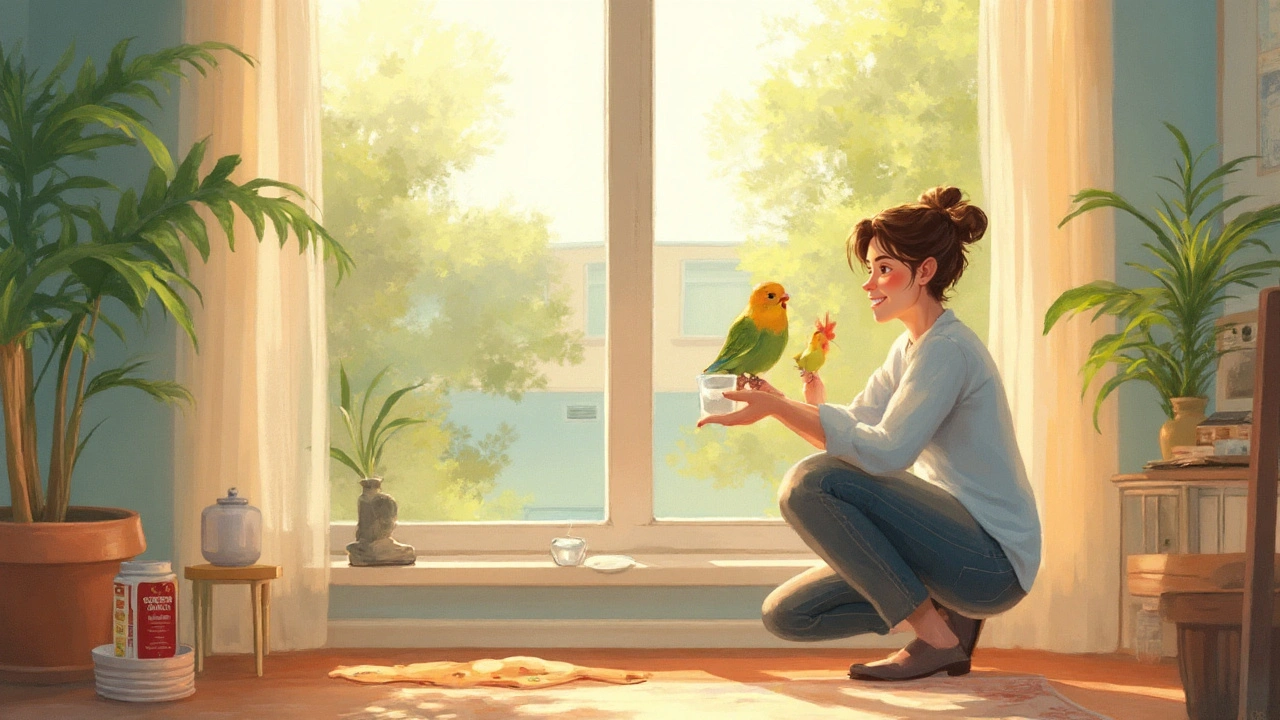Bird Health Checklist: Simple Steps to Keep Your Bird Happy and Healthy
If you love your bird, you want it to feel good every day. A quick checklist can help you catch problems early and give your feathered friend the best care. Below are the most important things to look at each day, each week, and whenever something seems off.
Daily Care Essentials
Check the food and water. Fresh water should be in the bowl at all times. Swap it out at least twice a day and rinse the bowl to prevent bacterial growth. Food should be clean and appropriate for the species – seed mixes, pellets, fresh fruits, and veggies as recommended. Remove any moldy or old pieces.
Watch the cage. Look for torn bars, loose perches, and any sharp edges that could hurt your bird. Clean the cage floor and replace bedding daily if you use it. A tidy cage means less stress for your pet.
Observe behavior. A healthy bird is alert, vocal, and moves around its cage. Note any changes like fluffed feathers, loss of appetite, or unusual quietness. Even a small difference can signal a problem.
Check the temperature. Birds need a stable environment, usually between 65‑80°F (18‑27°C) depending on the species. Avoid drafts, direct sun, and sudden temperature changes.
Play and interact. Spend at least 15‑30 minutes talking, training, or letting your bird out to stretch its wings safely. Social interaction reduces stress and keeps the mind sharp.
Weekly and Monthly Tasks
Deep clean the cage. Once a week, take the bird out, scrub the bars, perches, and tray with a bird‑safe cleaner. Rinse well and let everything dry before putting your bird back.
Inspect the feathers. Look for missing or broken feathers, lumps, or unusual shedding. Healthy feathers are smooth and lie flat against the body.
Weight check. Weigh your bird on a small kitchen scale or a pet scale every month. Sudden weight loss or gain can be an early warning sign.
Review the diet. Rotate fresh fruits and vegetables to provide a balanced mix of vitamins. Consult a vet for species‑specific recommendations.
Update the vet schedule. Keep a record of vaccinations, worming, and any previous health issues. Schedule a wellness check at least once a year.
When to Call the Vet
If you notice any of these signs, call your avian veterinarian right away:
- Fluffed feathers that don’t return to normal after a few hours.
- Difficulty breathing, wheezing, or open‑mouth breathing.
- Lethargy or inability to perch.
- Bloody or discolored droppings.
- Sudden loss of appetite lasting more than 12 hours.
Rapid action can prevent a minor issue from becoming serious. Keep your vet’s contact info handy and describe the symptoms clearly.
Using this bird health checklist every day will help you spot problems early and give your feathered friend a long, happy life. Stick to the routine, stay observant, and enjoy the bond you share with your bird.

Deplumation Guide: Essential Tips for Bird Owners and Enthusiasts
A detailed resource that explains deplumation, its causes, prevention, and care strategies for bird owners, with practical tips, comparisons, and a FAQ.